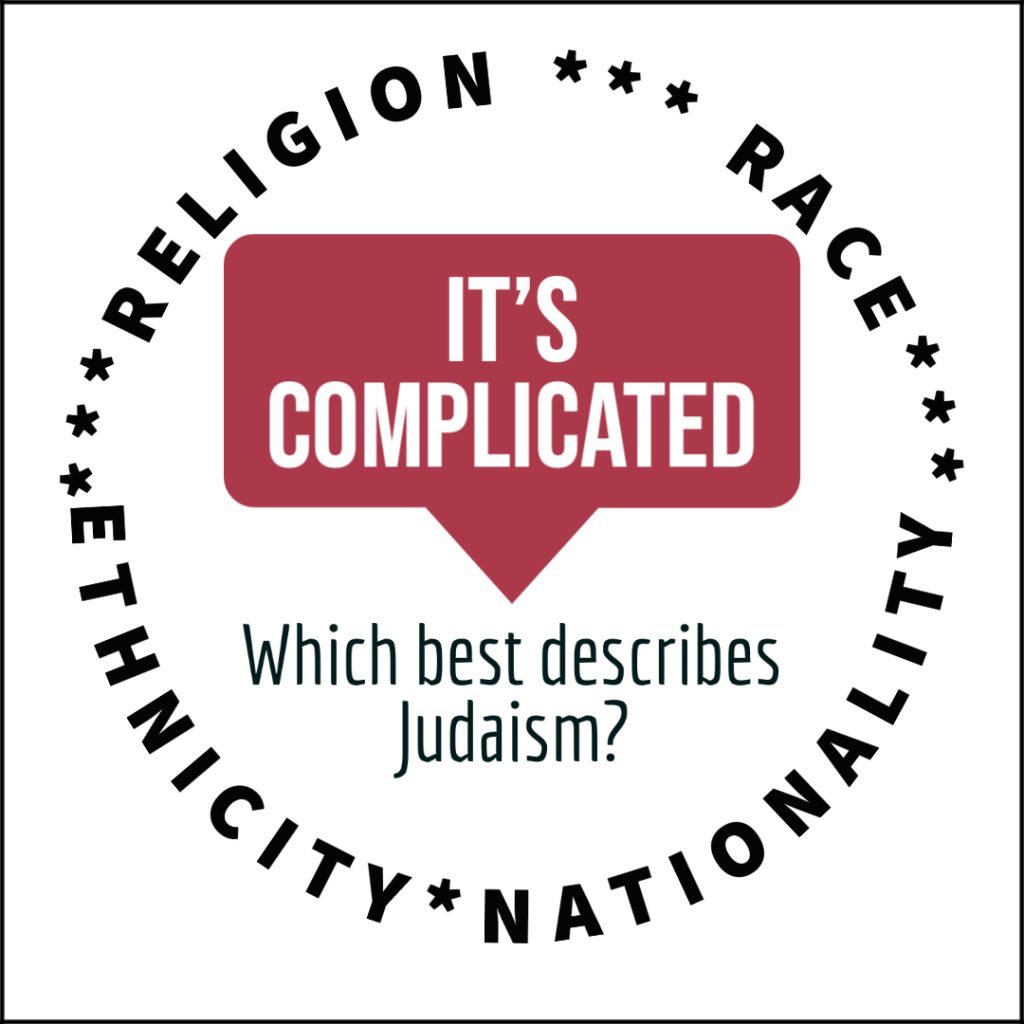In its history, the term “Jewish” (and related terms in other languages) referred sometimes to a member of a certain tribe, sometimes to someone living in a certain region, sometimes to a religion.
It is true that “race” is best understood as a social construct. But it is also true that Judaism has at times been thought of as a race–sometimes by some Jews as a point of honor and sometimes by antisemites as a point of hate (for example, Nazis and others primarily view Jews as an inferior race, a point apparently overlooked by Whoopi Goldberg in a 2022 series of incidents).
And also: Personal identity is a complex social phenomenon over and above biological questions about DNA (as this edition of NPR’s Code Switch helps explore).
As it relates to DNA, some denominations of Judaism define a Jew as someone born of a Jewish mother while others emphasize being born of any Jewish parent.
In terms of beliefs: Not all Jews are religious, not all Jews have the same ideas, and not all Jews believe in God.
And in terms of choice: Judaism accepts converts to Judaism and views them as Jews–through different groups and individuals will have different understandings of what that involves.
So in short: It’s complicated!

